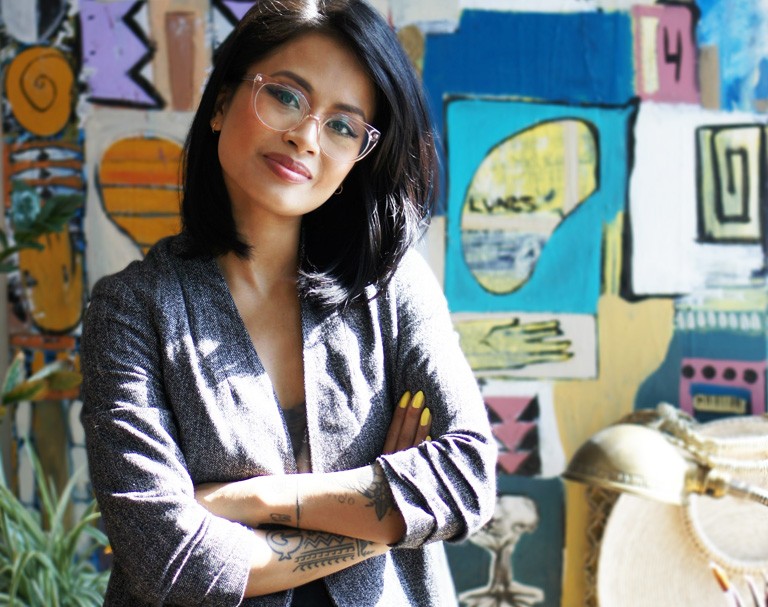 Marbella Carlos: "Art is more than just a vehicle for self-expression - it's a vehicle for healing and meaning-making."
Marbella Carlos: "Art is more than just a vehicle for self-expression - it's a vehicle for healing and meaning-making."Concordia graduate students Alexandra Bischoff and Marbella Carlos are among the finalists for this year's Social Sciences and Humanities Research Council (SSHRC) Storytellers competition.
The annual contest is open to postsecondary students from across the country who show how their SSHRC-funded research is impacting the lives of Canadians.
Past finalists have touched on everything from immigration to national identity to child psychology. Entries must be video or audio clips under three minutes or 300-word texts or infographics. Competitors are assessed by a panel of judges from Canada and abroad.
"Having two finalists in this national competition speaks to the quality of Concordia's students and the relevance of their research in the broader Canadian landscape," says Ali Dolatabadi, associate dean of recruitment and awards at the School of Graduate Studies.
The 25 finalists are awarded $3,000 each, and the top five go on to present at the SSHRC Impact Awards. Due to COVID-19, this year's Storytellers Showcase and Impact Awards will be rescheduled for 2021.
Empowering female-figure models and performance art
Alexandra Bischoff, a second-year MFA candidate in the Intermedia program, was selected as a finalist for her video submission, Refiguring the Model. It focuses on the role of female-presenting models throughout art history.
"As a durational performance artist myself, I came to realize how much I had in common with female-presenting figure models," she says. "We both use the body as our medium and the passage of time to convey meaning."
Her submission examines the anonymity of female-presenting models in famous paintings. She hopes to recontextualize their contributions and give them greater significance as a form of durational performance art.
"As a feminist artist, I'm always looking for ways to reinterpret art history and make space for underrepresented practitioners," she says.
"Initially, I was mostly concerned with the biographies of these women, which are often scant. But I found the comparison between modelling and performance to be both potent and poetic and I've been investigating it ever since."
Her message is simple and clear. "To every woman who has ever stood still for hours on end: I see you, and I'd love to know your name."
 Alexandra Bischoff: "As a feminist artist, I'm looking for ways to make space for underrepresented practitioners."
Alexandra Bischoff: "As a feminist artist, I'm looking for ways to make space for underrepresented practitioners."Art therapy for racial minority populations
Marbella Carlos, an MA student in the Department of Creative Art Therapies, was selected for her submission, "Healing in the Margins: Using Art to Address the Gaps in Mental Health for People of Colour."
Carlos examines access to mental health therapies for racialized people in Canada. She asks the question, How can art therapy and art-making benefit the mental health of people of colour?
"As a first-generation immigrant, it became clear early in life that there were barriers and obstacles that people like me face when accessing mental health care services," she says. "I wanted to shine a light on, or maybe even help dismantle, these barriers."
Through her research she has identified several hurdles facing racialized populations who want to utilize therapy services, and she has suggested ways that art therapy can respond to and alleviate these.
"Because many people are unfamiliar with art therapy practices, it sometimes isn't considered an impactful method," Carlos says.
"But art is more than just a vehicle for self-expression - it's a vehicle for healing, catharsis and meaning-making. I hope that more people start to consider art therapy as a meaningful and valid option for improving mental health and well-being."






